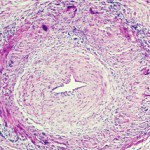SAN FRANCISCO—“Interstitial lung disease is the last bastion of great medicine,” according to Paul Noble, MD, chair, Department of Medicine, director, Women’s Guild Lung Institute, Vera and Paul Guerin Distinguished Chair in Pulmonary Medicine, Cedars-Sinai Medical Center, Los Angeles. Making it great medicine, he said, are the many things still unknown about this disease. In…






